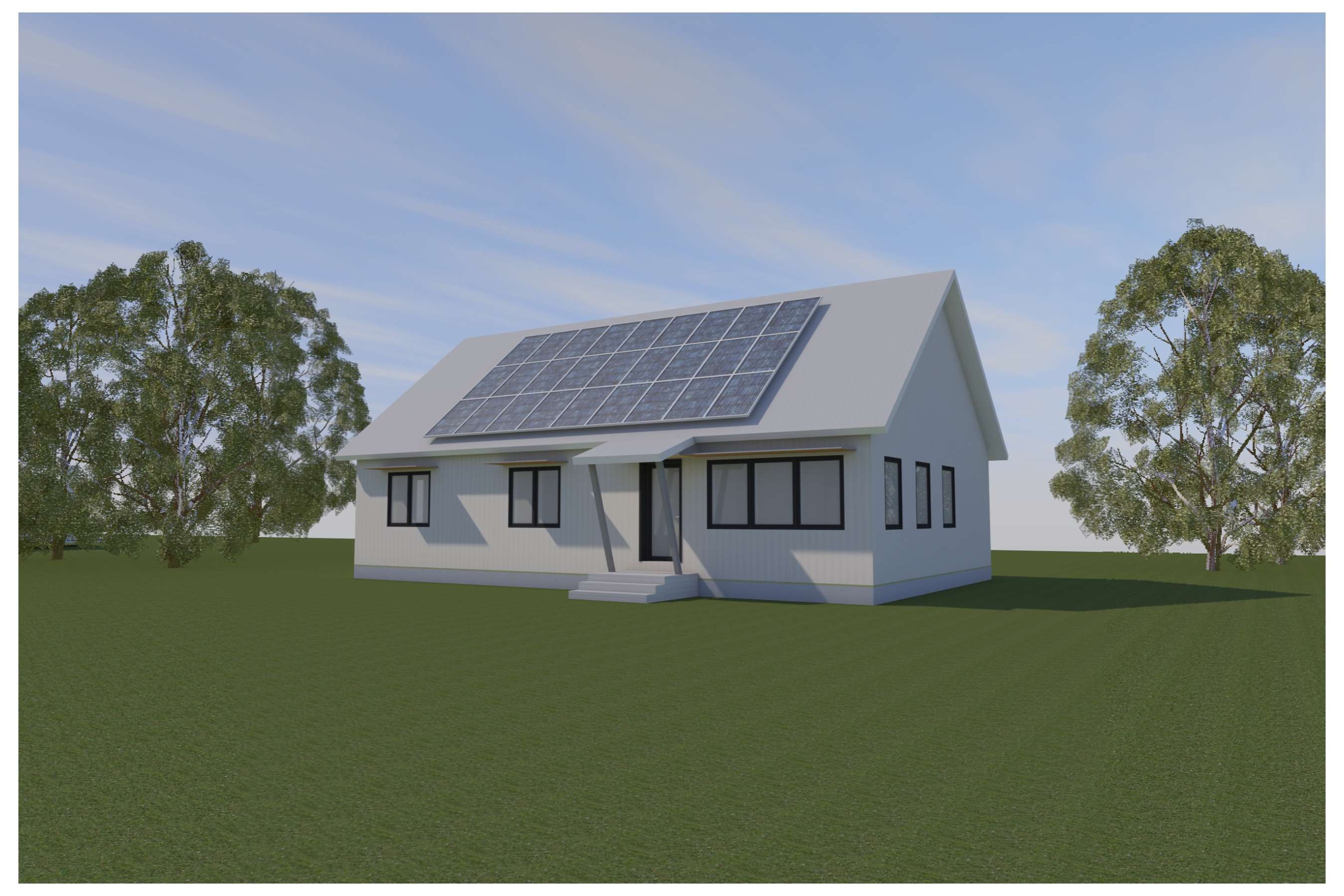
Millinocket nonprofit touts modular homes as a possible win-win for Maine economy
 Courtesy / Rob Riley
Maine has over 17 million acres of forest cover and, at 89%, the highest percentage of forest cover of any state, according to a 2021 state report on forest health. Changes in the region's forest economy are driving efforts to identify and create new markets for the state's wood supply.
Courtesy / Rob Riley
Maine has over 17 million acres of forest cover and, at 89%, the highest percentage of forest cover of any state, according to a 2021 state report on forest health. Changes in the region's forest economy are driving efforts to identify and create new markets for the state's wood supply.
More Information
A Millinocket nonprofit is looking at modular homes as a way to help alleviate the state's housing shortage while also using forest products from the Katahdin region.
The zero-energy homes would incorporate materials produced in Maine into affordable, environmentally sustainable homes, said Our Katahdin, a nonprofit founded in December 2014 to support community and economic development in the region. The building components would include dimensional lumber, sheathing, exterior siding, cellulose insulation, wood flooring, trim and cabinetry.
Our Katahdin has commissioned a market assessment of the proposal by Future Forest Economy Initiative, which is investing $2.7 million to find new markets for wood from the region’s forest.
Our Katahdin’s project aims to tap into market demand for new affordable housing in Maine, which MaineHousing estimates to be 20,000 units. Our Katahdin will assess the market for housing to be made in Maine as part of a larger effort to draw new manufacturing to the Katahdin region.

“This assessment is testing the potential for what could be a significant benefit to Maine,” said Joe Short, vice president of the Northern Forest Center, which manages the Future Forest Economy Initiative. “The region and the state need more housing, and the forest-based economy needs new markets to feed with the state’s abundant wood supply.”
A new manufacturer producing 300 to 500 modular homes per year would use a minimum of 2 million board feet of dimensional lumber and create opportunities for new wood-based construction products such as wood fiber insulation and nanocellulose wallboard, Short added.
The assessment will be specific to net-zero homes, which have tight thermal envelopes, excellent insulation, and efficient heating and cooling systems. Net-zero homes that can access solar-generated electricity reduce or eliminate monthly utility expenses for heat and electricity — a key piece to making and keeping homes affordable.
Our Katahdin owns and is redeveloping One North, a 1,400-acre industrial site in Millinocket that has been identified as a location for forest-product manufacturing due to its access to forest input.
Benefit for the region
Millinocket, East Millinocket and the surrounding Katahdin Region in northern Penobscot County could be well positioned to benefit from a modular-home manufacturing facility, said Steve Sanders, director of industrial site development for Our Katahdin.
“A facility turning out 300-plus homes a year would create new jobs for 60 full-time employees — jobs our region needs,” Sanders said.
The results of the statewide market assessment will be publicly available and are intended to provide information to motivate entrepreneurs in establishing new manufacturing sites for modular housing composed primarily of wood products from Maine.
The assessment will quantify and qualify the need and demand for the product in Maine; define market and price points; identify homeowner educational needs, financing opportunities, barriers and opportunities in working with low-income buyers/renters; and compare the proposed net-zero homes with other housing products in the same market.
“The Maine forest products industry needs new markets and Maine workers need new job skills and opportunities," Sanders added.
Our Katahdin purchased the former Great Northern Paper Co. site in Millinocket in 2017 and the town of East Millinocket purchased Great Northern’s East Millinocket mill in 2020. Both owners have been preparing their sites to serve new business tenants and cultivating businesses to locate there, with a particular emphasis on industries that can capitalize on the region’s wood supply and proximity to other wood manufacturers and markets.
To date, the Future Forest Economy Initiative has committed almost $2.7 million in grants to:
- Expand markets for a mass-timber building product called structural round timber in Ashland
- Increase demand for wood heating fuels through marketing
- Design and pre-engineering work to advance a wood-fired district heating system at University of Vermont Medical Center
- Redevelop a mill in Bingham to create jobs and the first domestically produced poplar plywood
- Implement a new heating system at the former Great Northern Paper Co. mill
- Research using wood from the northern forest in military vehicles to replace tropical hardwoods
- Acquisition and commission a pilot fiberboard manufacturing line for the University of Maine
- Enhance markets for certified wood and strengthen the supply chain for wood in the northern forest region through logger certification in New Hampshire, New York and Vermont
- Support certification of cross-laminated timber products made from northern forest wood for the University of New Hampshire Cooperative Extension
The initiative is a cooperative effort of the U.S. Economic Development Administration, U.S. Endowment for Forestry & Communities and the Northern Forest Center.
Mainebiz web partners
We will need to create non-profit land trusts that will provide lots with infrastructure to place these homes on.
What is the cost going to be for these homes? The Maine Housing numbers are showing they need affordable housing for extremely low income renters and are showing 19,264 need rentals. How is this going to help renters they cannot afford to buy one of the manufactured homes. Great idea but not for low income because they also need to buy land to put this house on.










2 Comments